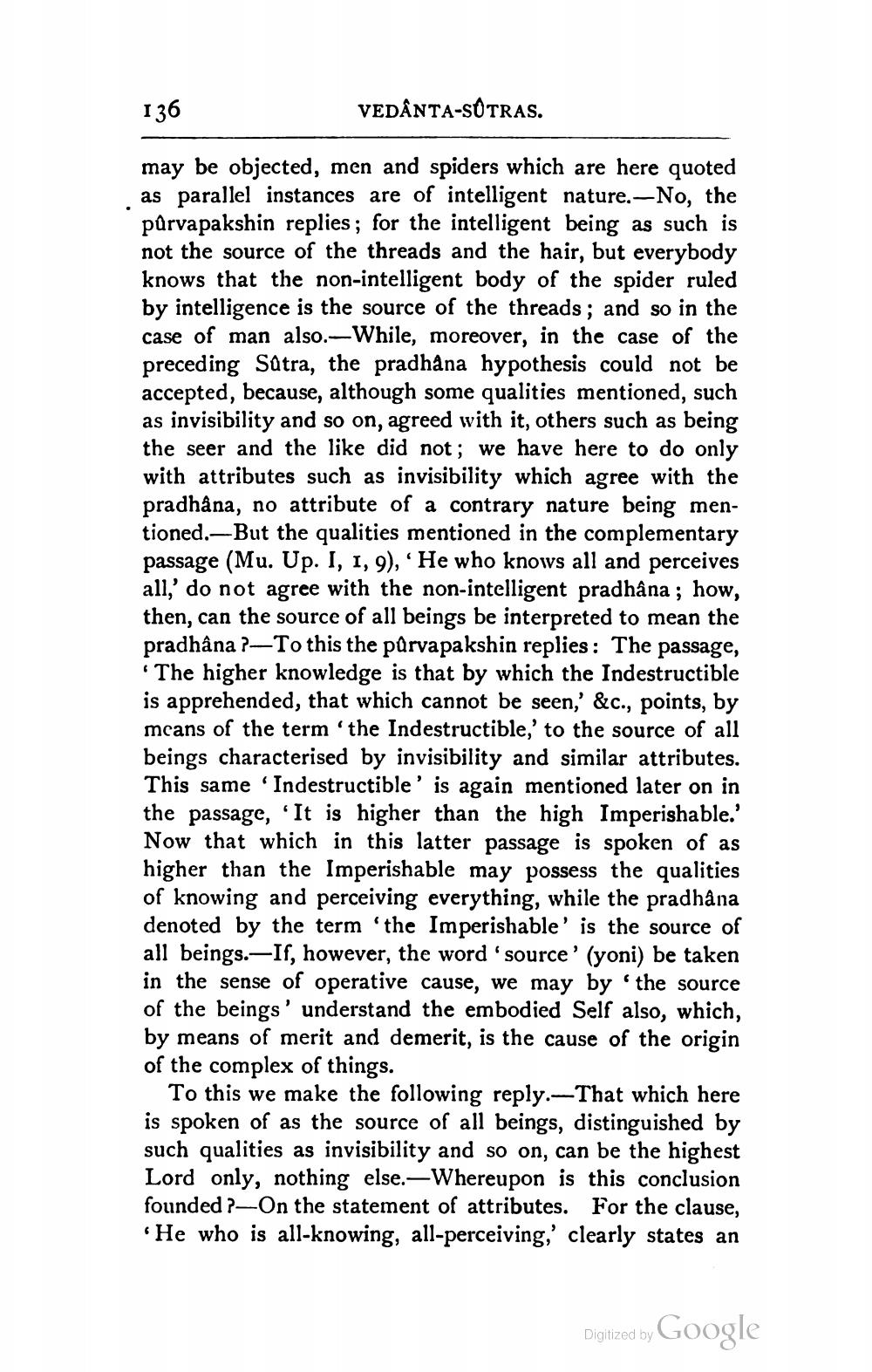________________
136
VEDÂNTA-SOTRAS.
may be objected, men and spiders which are here quoted as parallel instances are of intelligent nature.—No, the purvapakshin replies; for the intelligent being as such is not the source of the threads and the hair, but everybody knows that the non-intelligent body of the spider ruled by intelligence is the source of the threads; and so in the case of man also.-While, moreover, in the case of the preceding Sutra, the pradhana hypothesis could not be accepted, because, although some qualities mentioned, such as invisibility and so on, agreed with it, others such as being the seer and the like did not; we have here to do only with attributes such as invisibility which agree with the pradhana, no attribute of a contrary nature being mentioned.—But the qualities mentioned in the complementary passage (Mu. Up. I, 1, 9), “He who knows all and perceives all,' do not agree with the non-intelligent pradhâna; how, then, can the source of all beings be interpreted to mean the pradhâna ?—To this the purvapakshin replies: The passage,
The higher knowledge is that by which the Indestructible is apprehended, that which cannot be seen,' &c., points, by means of the term 'the Indestructible,' to the source of all beings characterised by invisibility and similar attributes. This same 'Indestructible' is again mentioned later on in the passage, It is higher than the high Imperishable.' Now that which in this latter passage is spoken of as higher than the Imperishable may possess the qualities of knowing and perceiving everything, while the pradhana denoted by the term 'the Imperishable' is the source of all beings. If, however, the word 'source' (yoni) be taken in the sense of operative cause, we may by the source of the beings' understand the embodied Self also, which, by means of merit and demerit, is the cause of the origin of the complex of things.
To this we make the following reply.-That which here is spoken of as the source of all beings, distinguished by such qualities as invisibility and so on, can be the highest Lord only, nothing else.—Whereupon is this conclusion founded ?—On the statement of attributes. For the clause, "He who is all-knowing, all-perceiving,' clearly states an
Digitized by Google




